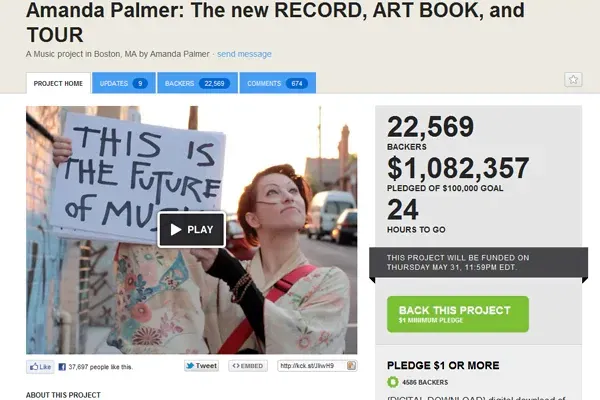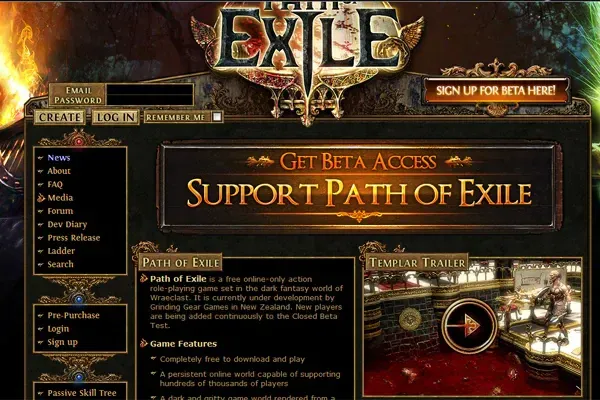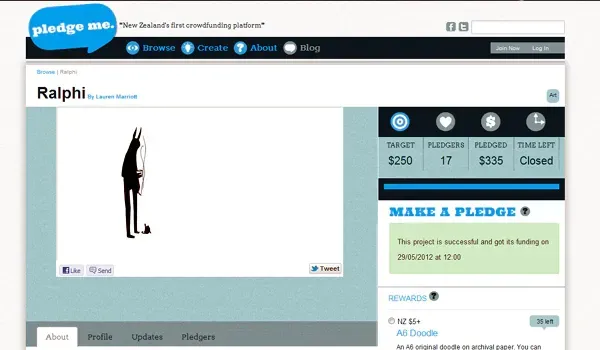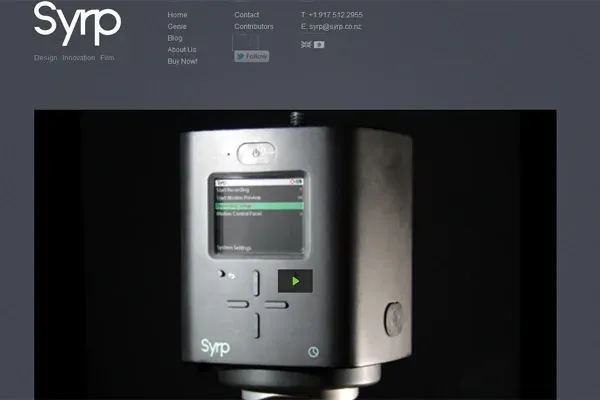Million Dollar Ideas
Written by

It’s the ultimate dream, to earn a million dollars from your creative idea. While not everyone has the fan funding power of US muso Amanda Palmer or NZ filmmaker Taika Waititi, Helen Baxter says every crowdfunding campaign offers earning through learning, profile raising and audience engagement - if you put the effort in.
“Without a good promotional strategy across old and new media to back up your campaign, it’s like putting a poster on your bedroom wall and hoping the world will see it.”
* * *
Nearly $1.5 billion was raised worldwide through crowdfunding last year, proving that people love to support creative endeavours for the feel-good factor or to get a hot new product before everyone else. Kickstarter has been dubbed the ‘hipster home shopping network’, but the big difference is that hipsters are buying things that haven’t been made yet.
RocketHub calls crowdfunding 'an event, that harnesses a network and audience, for funds, awareness, and feedback'. Describing a crowdfunding campaign as an ‘event’ is apt as it gives people an experience, souvenirs, memories, and something to talk about. There’s currently so much happening in the crowdfunding space, that I have created a Crowdfunding Map of sites, how to guides and stories.
US musician Amanda Palmer is currently shattering records having raised over a million dollars so far for her new album, art book and tour, over ten times what she originally asked for. She’s a great example of an artist who has all the elements for crowdfunding success, she’s authentic, transparent, with a clear plan, compelling rewards, a track record of delivering, and bucket loads of social media celebrity.
It’s not just US artists and designers getting in on the crowdfunding act. New Zealand’s Grinding Gears Games has raised over $200,000 preselling supporters packs for Path of Exile. In the South Island, Syrp are on track to raise over $500,000 to produce their motion-controlled time-lapse photography gadget. They offer pledgers a range of rewards, from a “shouting out a thank you like a llama into the hills and valleys of Queenstown” to being thrown off bridge by the Syrp founders (with a bungee cord attached).
Not every crowdfunding campaign is successful with less than 50% of campaigns reaching their target on Kickstarter or Kiwi site Pledge Me. Funds pledged are held in escrow and returned to pledgers if the target is not reached, but every campaign offers opportunities for earning through learning, profile raising and audience engagement if you put the effort in. Above all, you need to have a really good story to tell, and to answer these questions well:
- Who are you?
- How much do you want?
- What are you spending it on?
- What rewards do I get for different pledges?
- When do you need me to pledge by?
Crowdfunding should be seen as part of a mixed funding model of grants, donations, and pre-sales. Every campaign needs a compelling title and description, a clear goal and time frame. A great video will increase opportunities for engagement, sharing and could increase the amount of money you raise. The real power is in the rewards and the chance to buy things that you can’t get elsewhere. Rewards should start off with small and simple to deliver offers, to highly personalised experiences and limited edition items.
Crowdfunding allows you to raise money, get feedback and engage directly with fans, but it takes time, and you can be putting your reputation on the line if you don’t deliver on your promises. Without a good promotional strategy across old and new media to back up your campaign, it’s like putting a poster on your bedroom wall and hoping the world will see it. Choosing when to run a campaign and how much to raise is important as is whether to go with a local or international crowdfunding platform.
Kickstarter
Most of the million dollar success stories are currently coming from US site Kickstarter, but you need to have a US address and bank account to set up a project.
Indiegogo
Indiegogo is an international crowdfunding site that Kiwis can use, which has the ‘go-go factor’, a custom built algorithm that gives small projects as much of a chance of appearing on the homepage as large ones.
Sellaband
NZ Musician and Kiwi Fm radio host Fleur Jack has successfully raised $50,000 for an album on Sellaband. It’s interesting to note that she would not have gone for such a large sum, but it was the minimum amount you can raise.
Give a Little
Though it's not a crowdfunding site, a notable mention has to go to Give a Little, which has done sterling work in raising donations for creative Kiwi projects since 2007. The usual difference between online donations and crowdfunding is whether rewards are offered in return for pledges.
Boosted
Boosted is a new crowdfunding platform backed by the Arts Foundation that is in development. No rewards are required and donations are legally made to the Arts Foundation for pre-approved projects, so as a result, all donations will be tax deductible. The model is similar to the United States Artists website, which has has a 75% project success rate, whereas Kickstarter has a 44% project success rate according to the New York Times.
Pledge Me
Pledge Me is a more classic crowdfunding site launched in New Zealand last year. There are no costs to set up a project, with a 9% fee deducted for admin costs and credit card fees (if a project is successful). Their largest funded project to date is Stand Up which raised over $11,000 in five days and the quickest project to be funded is Ralphi which was funded in 12 hours. The most pledged project so far date is Gone Curling a documentary about curling in the South Island, which won the best new NZ doco at the DocEdge film festival.
Armchair Angels
The future of crowdfunding may be an army of armchair angel investors, as President Obama has recently signed the Jumpstart our Early Business or JOBS Act. This opens up crowdfunding as a new form of start up capital in the USA, without needing an expensive Initial Public Offering or (IPO).
In the UK, equity crowdfunding or hyperfunding sites like Crowdcube are growing in popularity, allowing startups to raise money for projects such as Escape the City, who have had the luxury of turning down Large VC funding because of their crowdfunding success.
Crowdfunding may even take over some civic funding duties, with a crowdfunded pedestrian bridge in Holland, that gives citizens a chance to show how far they are willing to go, by how much they are prepared to pay.



